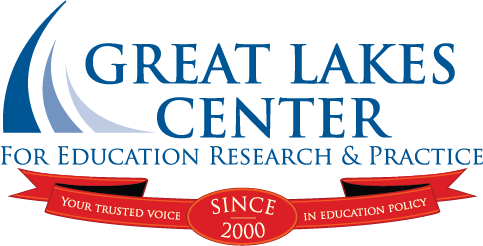
Think Twice Weekly Report
JANUARY 20, 2024 - JANUARY 26, 2024
The Think Twice Weekly Report compiles public education-related policy reports, research and articles of interest to policymakers, educators and stakeholders. This list is not exhaustive but is meant to highlight recent reports that may be used to support or undermine the work of our subscribers in supporting public schools. We encourage you to take a moment to scan these reports and determine if they may be used by policy makers to assist or erode your mission.
 Policy Reports
Policy Reports
Politics, Policy and School Practices
Source: Policy Studies Journal
Date: December 2023
Narrative spillover: A narrative policy framework analysis of critical race theory discourse at multiple levels
The rapid rise and swift spread of the ban-CRT narrative presents a unique opportunity to study the impact of narratives on policy debates. In this study, we use the narrative policy framework (NPF) to conceptualize and empirically examine how narratives alter political beliefs and how such shifts in beliefs might differ based on individuals' sociopolitical backgrounds.
Charter Schools / School Choice
Source: Fordham Institute
Date: 1/24/2024
New Home, Same School: Charters and residentially mobile students
Because the housing and education markets are linked, evictions and other involuntary changes in residence often force students to change schools at a time when they are already vulnerable.
But is disrupting at-risk students' education in this manner really necessary?
In this report, University of North Carolina professor Douglas Lee Lauen uses a unique dataset to examine whether charter school enrollment breaks the link between residential and school mobility, particularly for students from traditionally disadvantaged communities. The results suggest that the right to school choice is also about the right to stay put.
Reading Instruction
Source: Bellwether
Date: 1/23/2024
On the Same Page: A Primer on the Science of Reading and Its Future for Policymakers, School Leaders, and Advocates
Improving reading instruction is one of the hottest topics in K-12 education today. It is also one of the most complex, encompassing pedagogy, policy, and politics - all rooted in a long history of arguments about the best way to teach kids to read.
On the Same Page: A Primer on the Science of Reading and Its Future for Policymakers, School Leaders, and Advocates is a primer on "the science of reading" for policymakers, advocates, and members of the media. This publication aims to provide a clear fact base for discussions about reading instruction and lessons from past large-scale reform efforts.
School Choice / School Finance and Funding.
Source: Reason Foundation, Ed Choice
Date: 1/23/2024
K-12 school choice calculator
Policymakers considering school choice proposals want to know about the fiscal effects of these programs on taxpayers and public school districts. Enter the new K-12 School Choice Calculator (SCC), a dynamic tool released today for legislators, fiscal analysts, and others who are interested in learning about the fiscal impact of private school choice programs across all 50 states. This tool represents a collaborative effort between EdChoice’s Fiscal Research and Education Center and Reason Foundation.
"The SCC allows users to design an ESA program for any state and provides a range of estimates for the fiscal effects of an education savings account (ESA) program on state and local taxpayers combined," writes Martin Lueken, director of fiscal policy and analysis at EdChoice. "We hope this tool can be useful for lawmakers and stakeholders and help inform program design."
 Reports Reviewed
Reports Reviewed
GLC seeks to ensure that policy briefs impacting education reform are based on sound, credible academic research. Below are reviews conducted with GLC support.
Once Again, University of Arkansas Charter Funding Report Makes Unfounded Claims
Source: University of Arkansas Department of Education Reform
Reviewed by: Mark Weber, Rutgers University
Mark Weber of Rutgers University and the New Jersey Policy Perspective reviewed Still a Good Investment: Charter School Productivity in Nine Cities and details the faulty methodology that undermines the validity of its conclusions.
 What We're Reading
What We're Reading
Research and articles that we want to highlight for subscribers as potential resources:
Bad idea has a shot in the Legislature
By: George Ayoub, Nebraska Examiner
A proposal in the Nebraska Legislature would do away with tenure for the state’s public college professors. This opinion piece, from an adjunct professor at a private college, lays out a strong argument regarding how detrimental this change could be.
A Tale of Two Federal Grants for Public Education
By: Jeff Bryant, The Progressive Magazine
The Department of Education has separate grant programs for funding either charter or community schools; the latter provides money for what schools and families really need, the former, not so much.
Tax Avoidance Continues to Fuel School Privatization Efforts
By: Carl Davis, Institute on Taxation and Economic Policy
School privatization proponents have managed to set up state policies that harness deficiencies in federal tax law and the self-interest of wealthy families to gin up enthusiasm for privatizing the U.S. public education system. Wealthy families are overwhelmingly the ones using school voucher tax credits to opt out of paying for public education and other public services and to redirect their tax dollars to private and religious institutions instead. Most of these credits are being claimed by families with incomes over $200,000.
Students do better and schools are more stable when teachers get mental health support
By: Lee Ann Rawlins Williams, The Conversation
As teachers navigate the highs and lows of their profession, taking care of their emotional and mental well-being is essential. Research backs this up. Not only do teachers personally benefit from improved mental health, but their students do, too.
Keeping Students Safe: Designing Policies and Practices That Work
By: Jennifer DePaoli and Jennifer McCombs, Education Commission of the States
In a recent Learning Policy Institute report, they examined the evidence behind school safety improvement strategies, which fall into two broad approaches: increasing physical security and building supportive school communities.
